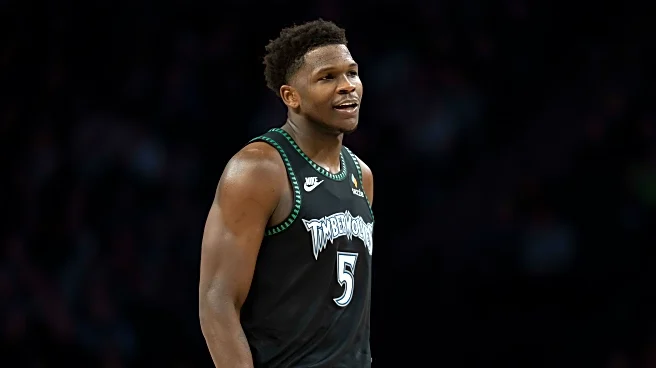What's Happening?
Dwyane Wade, the retired NBA star and three-time champion, is transitioning into a new role as an in-game commentator and studio analyst for Amazon Prime Video. This move comes as Amazon Prime Video prepares to air NBA games for the first time in the 2025-26
season. Wade, who retired from professional basketball in 2019, expressed his desire to remain active and engaged in the sport he loves. He shared with GQ Hype that he misses the competitive aspect of being 'better than people' and is eager to bring his expertise to the broadcasting arena. Wade's debut with NBA on Prime is scheduled for October 24, where he will join a team of notable figures including Candace Parker, Blake Griffin, and Dirk Nowitzki.
Why It's Important?
Wade's transition to broadcasting highlights a growing trend among retired athletes who seek to leverage their on-court experience in media roles. His involvement with Amazon Prime Video is significant as it marks the streaming service's entry into live NBA game broadcasting, potentially altering the landscape of sports media. This move could influence how sports content is consumed, with streaming platforms increasingly competing with traditional networks. For Amazon, securing a high-profile figure like Wade could attract a broader audience and enhance its credibility in sports broadcasting. Wade's presence may also inspire other retired athletes to explore similar opportunities, further blurring the lines between sports and media.
What's Next?
As Wade embarks on his new role, the sports broadcasting industry will be watching closely to see how Amazon Prime Video's NBA coverage is received by audiences. The success of this venture could encourage other streaming platforms to invest more heavily in live sports content. Additionally, Wade's performance as a commentator will be scrutinized, potentially setting a precedent for other athletes considering similar career paths. Stakeholders in the sports media industry, including traditional networks and other streaming services, may need to adapt their strategies in response to this evolving landscape.

















